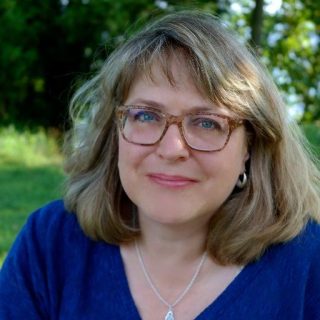Diana Butler Bass writes about the importance of politics in church
Wednesday 31st July 2024
I always liked religion and politics. Religion and politics made my childhood Methodist church interesting. The grown-ups got mad when young preachers from places like Yale came in and told them that Dr. King was right and that we were killing people in a jungle in a place called Vietnam. Mostly, adults seemed polite and restrained in that old world. But you could count on a passionate preacher in a formal robe creating a family argument over Sunday lunch.

Even in my working-class, non-college educated neighborhood, we heard sermons quoting writers whose work I’d later read for myself — Martin Luther King, Jr., Daniel Berrigan, Dorothy Day, the Niebuhr brothers, William Sloan Coffin, Thomas Merton, and Harvey Cox. Indeed, people talked about the Niebuhrs so much that I thought they lived in our neighborhood. Theologians were among the first intellectuals I knew (novelists would also be on this list).
Maybe politics caused mainline decline. But it also did something else. Talking about politics in church opened our congregations to a world that would have otherwise been well beyond our experience — the world of university and seminary classrooms where men and women argued about ideas that mattered regarding community, justice, and equality. In working-class Baltimore, we were the trickle-down mainline recipients of the great discussions of the day.
We inherited a long tradition of complexity and conflict in Christianity: What should be the relationship between, as Augustine put it, the City of God and the City of Man? What did Jerusalem have to do with Athens? What is the Kingdom of God? Who counts as fully human in that holy commonwealth? How do we care for our neighbors? Will the poor always be with us? Can a Christian go to war? What is our moral responsibility for the world?
Welcome to my childhood church. Sure, there were animal crackers and juice. Little gold stars for memorizing books of the Bible and Holy Land maps. We talked about all these things, too — as was appropriate at each age level. But we learned the questions.
And there was, in the hallway outside of the Sunday school classroom, a framed TIME magazine cover, even then yellowing with age, of Reinhold Niebuhr, a kind of Protestant saint of the questions.


Comments